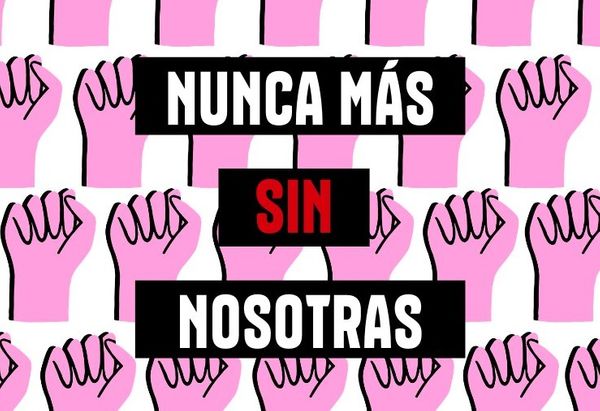Gina Martin, And Why You Need To Know Her - by Annabelle Saunders
It is important to remember when listening to Gina Martin’s story that she began it a normal girl going to a festival with her sister. There is no reason why this should have led to her needing to catch the stranger who took a photo up her skirt, take his phone to the police, hear that nothing could be done as there was no law in England and Wales against upskirting, and then spend a harrowing year pushing an anti-upskirting bill through parliament and into law. However she did manage it, as well as creating and leading a number of fantastic feminist campaigns, and also writing a book called Be the Change: A Toolkit for the Activist in You.
Gina’s journey putting the crime of upskirting from experience into law is best understood by watching her Ted talk, because as we must realise by now, listening to someone when they come forwards with their experience is the best start to being a good ally. The impression one gets after seeing the video reiterates the importance of viewing Gina Martin’s work both on its personal level and its professional one. Her strength and tenacity with putting the injustice she experienced into a life-changing law for so many women like her, as well as girls younger than herself, is incredible, while the emotional and mental toll of the process for her on a personal level is entirely heart-breaking. In her usual pragmatic way, Gina Martin summarises her experience throughout the talk using life lessons which she took away from the process.
The first of these that I want to discuss is that “Women and marginalised genders shut their mouths because we make it harder for them when they’re open. So stop questioning the way survivors act as if they are navigating a simple and perfect system. They’re not”. This point is so important to remember when approaching the practical reality of reporting harassment. Gina Martin describes how at every step of her battle for the justice system to help her, she encountered people who made the process harder. This included a female police officer suggesting on live TV that Gina wear trousers in future and telling her that the police had bigger problems to deal with, the torrents of online abuse and threats when she shared her campaigns online, and the setbacks in parliament which made the process of passing the bill a mentally and emotionally exhausting one.
There was also, however, evidence of allyship which provided some helpful relief for Gina as she personally took on the task of passing a law for her own protection. These included the bouncer who protected her from her aggressor once she got hold of his phone and ran for safety, the police who separated him from her when they arrived, Ryan Whelan of Gibson Dunn & Crutcher LLP - the lawyer who took her case pro-bono, and the MPs who backed the bill and supported it through parliament.
We can learn from this not to underestimate the layers of oppression women and minority genders face when seeking justice, and the importance of using any power, privilege or time at our disposal to be a helpful and supportive ally. While it might sometimes seem to us that the problem of gender violence and harassment is so enormous we don’t know where to start with dismantling it, Gina Martin’s story shows how each individual will be presented with the opportunity at some point in their lives to make a victim’s experience easier or harder to manage, and it is at this time that we must do everything we can to intervene and to support.
Another of the lessons Gina discusses from her experience of turning the gap in the justice system into legislation was that “Human rights aren’t about party politics. It’s about morals and values. Instead of thinking ‘left’ or ‘right’, start thinking ‘up’ or ‘down’. Who is society easier for? Who is society harder for?”. She follows this by saying, “If we start doing that, we start getting work done”, a statement which summarises why Gina Martin’s attitude has yielded such amazing results. Asking the question, ‘what needs doing and how can I start now?’ can be the catalyst for so much beneficial change, and can turn fear or frustration into strength and momentum. The power of Gina’s work lies in her internal sense of justice when faced with social issues, and her ability to take sustained and purposeful action to confront them.
The fact that it took a year for her bill to go through its many stages in parliament is frustrating to hear about second hand, let alone for her to have lived it in the first place, but the fact that it was passed, “unamended, practically as we created it”, is, as she says, “the kind of law you get when it’s driven by someone who has lived the problem”. It is immensely powerful that Gina Martin did harness the feminist rage at her mistreatment to create and bring into practice such a life-changing law for so many people, but again I’m sure we all feel the injustice of a woman needing to sacrifice so much of her time and mental energy for an entire year in the first place. I doubt that the perpetrators of the initial crime gave it another minute of thought. Thank goodness she had the strength to do it however, as by Christmas of 2019, 10 men had been arrested under this law, including paedophiles who were discovered with hundreds of photos. We can never underestimate the impact of Gina Martin putting herself through so much grief with so much tenacity and bravery.
The horrific online abuse and threats she faced while advocating for the safety of women in public is glaring proof of the necessity for a commitment to feminism in our generation, and the need for everyone not only to evaluate their own language and behaviour, but to call it out in the people around them when they see it. As modern feminists we are often questioned about the need for feminism, or the presence of misogyny in British life, but glancing at the comment section of any public account on Instagram or YouTube would very rapidly provide examples of the ever-looming threat from violent and misogynistic people. Gina Martin has recently written a very vulnerable article for the Guardian about her experience of online abuse and threats since she began her journey of activism, which would be very valuable for anyone doubting her cause to read.
The final lesson Gina Martin mentions in her speech is that “Communities that are oppressed should not be left alone to dismantle what has been built against them. Use your privilege to assist”. With this in mind, my first recommendation would be to follow Gina Martin on Instagram! If you’re not on Instagram don’t worry, you can sign up to her newsletter by email via her website. Not only does she balance her powerful campaigning with moments of light relief, but she elevates the voices of others which means that as a follower you have access to all sorts of useful content. You might also consider buying her book in order to use her expertise to promote other issues. I would also recommend the Instagram She Should Run, an organisation which promotes women entering politics at all levels.
Beyond that, try signing and sharing any petitions you see to make helpful change in government, and consider proposing a feminist charity from the following list when your school or university holds a charity event:
- https://hopeforjustice.org/,
- https://www.hashtaghappyperiod.org/,
- https://www.globalfundforwomen.org/,
- https://www.womensrefugeecommission.org/.
Most importantly, listen to your friends when they tell you about incidents in their lives, and ask them what their needs are so you can best intervene without hurting the victim. Being present and supportive for the people around you is an incredibly powerful way to start making a difference.




